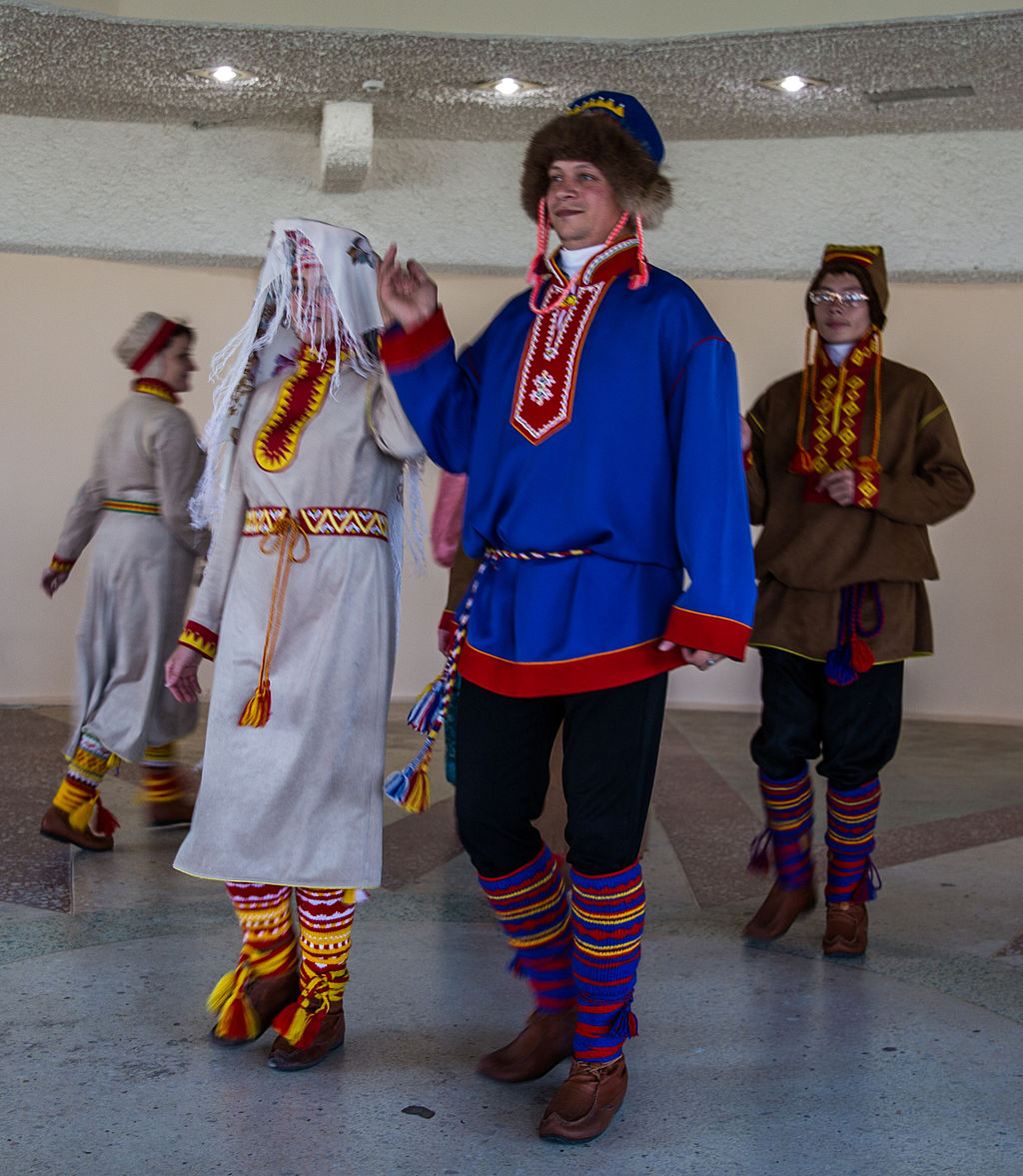Indigenous: the very word brings to mind Native Americans or Australian Aborigines. It is quite difficult to disentangle this word from the notion of “non-indigenous” Europeans colonizing “indigenous” people on a distant continent. There is, however, a group of people in Europe who can claim to be indigenous: the Sami. These nomadic people from the far north of Scandinavia have been slowly losing their rights to the grazing lands necessary for traditional reindeer-herding. Additionally, far-right groups in the Nordic countries have been stirring up anti-Sami sentiment over the past decade. Their nomadic way of life makes the Sami especially vulnerable to this encroachment and discrimination.
For all practical purposes, the Sami fit the dictionary definition as being northern Scandinavia’s indigenous people, as they have inhabited this region since before the beginning of recorded history. The ethnic groups that are typically referred to as Norwegians, Swedes, and Finns only began pushing into Sami lands in the 1400s, thus beginning the marginalization of the Sami. The cultural practices of the Sami revolve around reindeer herding and can only be practiced in this region, so the argument that the Sami have a unique connection to this region is especially strong.
However, there is a powerful strain of thought in Scandinavia that considers the Sami culturally and racially foreign to Europe. In 2016, government lawyers in a Sami land-rights case in Sweden came under fire for utilizing “rhetoric of race biology” in arguing against Sami control of fish and game in a tract of land above the Arctic Circle. The far-right has been able to seize on this anti-Sami racism in its attempt to galvanize populist support. In 2014, Björn Söder, leader of the far-right Sweden Democrats, implied that the Sami “belong to other nations” and are therefore inherently antithetical to Swedish culture. Additionally, some non-Sami in northern Sweden resent Sami hunting rights, with one non-Sami hunter worrying after a Sami court victory: “The next step will be restrictions on snowmobiling and moose hunting.”
The notion of Sami foreignness is prevalent in Norway as well as Sweden. In 1994, a Norwegian member of parliament gave part of a speech in the Sami language. The head of a far-right party responded by lumping Sami in with Urdu as a “language incomprehensible to most Norwegians” and therefore unfit for use in an official context. The comparison between Sami and Urdu is telling, as it seems intended to imply that not only are the Sami not Norwegian, they are not even properly European.
Being nomadic in modern Europe comes with a whole host of difficulties for the Sami. Past groups of Sami were once somewhat stationary hunter-gatherers and probably became more nomadic as a result of early Norwegian encroachment. The establishment of the border between Norway and Sweden in the eighteenth century made it harder for some groups of northern Sami to access reindeer-grazing lands in Norway. Because of this, these groups of Sami had to encroach on the lands of other groups of Sami to the south. This was hardly the only time that loss of land caused intra-Sami conflicts over grazing lands. At present, the Sami who live near the Norwegian borders with Finland and Russia must compete with coastal Sami due to their lack of access to exclusive grazing lands of their own. The Sami are also victims of resource geography, as their traditional lands in Sweden contain staggering amounts of mineral wealth that governments are reluctant to relinquish, including the largest underground mine in the world.
As bleak as their situation may seem, the Sami have several potential routes to a better future. The United Nations can pressure governments to protect the rights of the Sami through the International Labour Organization’s 1989 Indigenous and Tribal Peoples Convention. However, even though this convention has been ratified by Norway, it has not been ratified by Sweden. A more feasible option for Sami in Sweden might be through increased self-determination. Sweden already has a Sami parliament with some authority over reindeer-related issues. An expansion of its authority would allow the Sami to better protect their way of life. One solution that has proven to be effective would be to take governmental encroachments on land rights to court. The Swedish Sami Association, which represents Sami interests, has found some legal success so far in the previously mentioned “race biology” case in which the Sami successfully regained some of their land rights. Whatever combination of tools they use to improve their position, the Sami need the ability to access economic and political opportunities comparable to those available to other Scandinavians while simultaneously being able to defend their distinctive way of life. In order for the Sami to be treated with dignity, they must be truly respected as part of a multicultural Scandinavia.
Featured Image Source: Wikimedia Commons






Be First to Comment